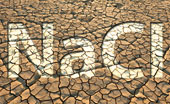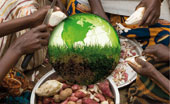
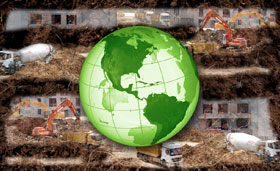
REVIVING "DEAD SOILS"


HUMUS PRODUCTION
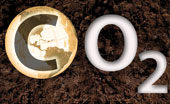
CARBON STORAGE
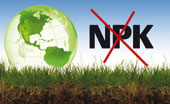
NATURAL FERTILIZATION

WATER-SAVING SOLUTION
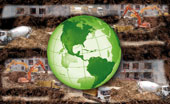
REGENERATING "DEAD" SOILS
MM’s process regenerates the soils highly damaged by earthmoving works or aggressed by a long use of chemical fertilizers
MM’s natural process of microorganisms succeeds in creating organic matter where there was no more of it. It makes it evolve by humification to change it into humus. This progressive soil reconstitution can be seen initially in the creation of aggregates and further development of lichen and moss. This developed soil structure will permit a new natural colonization of land by wild plant species or selected plants.
In farming, sowing MM’s process on chemically fertilized lands permits a natural reconstitution of humus and resettlement of microbial life in soil. The reappearance of earthworms especially is the best evidence.
Results of experiments performed by Sobac in partnership with scientists and institutions:
The two following experiments were performed by the Sobac in partnership with the French Directions Départementales de l’Equipement of Haute-Garonne and Tarn-et-Garonne in order to consolidate highway and road sides by revegetating them quickly. MM’s process was used for seeding―here under the trademark Quaterna Revégétalisation® of Sobac.
DDE 31 - SOBAC
Consolidation of roadsides in mountain areas
Load the report on the experiment (download PDF file - FR)
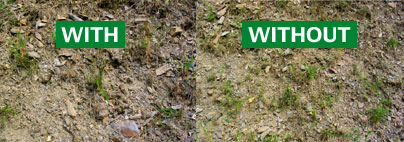
Density of plant spreading improved by the input of Quaterna Revégétalisation (MM’s process)

Higher colonization of the embankment by varied species: herbaceous, but also shrub species
DDE 82 - SOBAC
Consolidation of highway sides by revegetation with no supply in topsoil
Load the report on the experiment (download PDF file - FR)
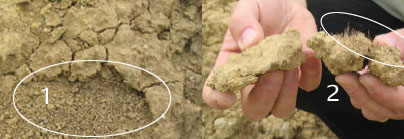
7 months after sowing MM’s process
- Constitution of aggregates through the organic matter humification
- Development of early mosses and structuring of the
![]()

![]() Homepage -
Legal notice -
Contact us
Homepage -
Legal notice -
Contact us
The invention -
Sharing with the worlds farmers -
Marketing -
Humus production -
Carbon Storage -
Natural fertilization -
Water-saving solution -
Regenerating "dead" soils -
Solution for saline soils -
Recycling of organic waste -
Food solutions -
Biodiversity impacts
© Marcel Mézy technologies™ Environmental Solutions - 2012-2013 all rights reserved
